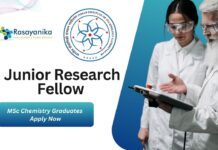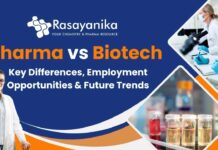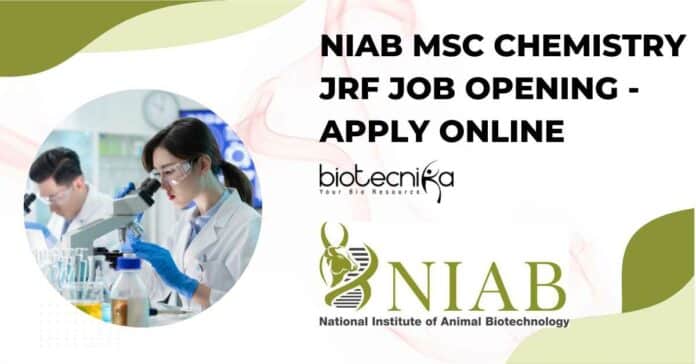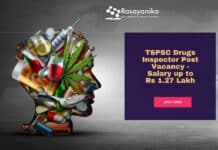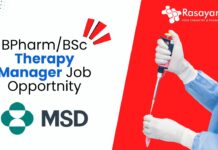NIAB MSc Chemistry JRF Job Opening – Apply Online
NIAB MSc Chemistry JRF Job Opening – Apply Online. MSc Chemistry Junior Research Fellow job opening. National Institute of Animal Biotechnology (NIAB), Hyderabad JRF Jobs. NIAB Careers. Interested and eligible applicants can check out all of the details on the same below
The five possible interview questions along with their answers for the technical round are posted below
Advt. No. 21/2023
Applications are invited from suitable candidates for filling up the following position at National Institute of Animal Biotechnology (NIAB), Hyderabad.
Project Entitled: “PESTISCAN (Development of Novel Biosensor for Endosulfan Pesticide Residue Detection)”.
PI: Dr. Sonu Gandhi
Duration: 1 Year
Junior Research Fellow- (1 Post)
Fellowship amount: Rs. 31,000/- PM fixed as per the SERB guidelines.
Eligibility: Post Graduate Degree in Biomedical Engineering/Chemistry with NET qualification or Post Graduate degree in professional course. (Eligibility criteria as per SERB OM No. SB/S9/Z-07/2020 dated 25.08.2020). However Non-NET candidates can also apply who will be paid as per their eligibility. Candidate with experience in organic chemistry and device fabrication will be preferred. Candidates having prior experience in working with the development of diagnostic assays is desirable.
Age: 28 years (Relaxation is admissible in case
of SC/ST/OBC candidates as per Government instructions)How to Apply:
Applications are to be filled ONLINE. Online link for submission of application is available from 16-06-2023 and the last date is 30-06-2023 By 5:00 PM. Candidates must fill online application form at www.niab.res.in. Candidates are advised to fill the online application form in sufficient time before the last date to avoid last minute technical issues.
Suitable candidates will be screened, intimated through email and interviewed by duly constituted selection committee through online. Original documents in support of date of birth, educational qualifications, experience certificates are required to be submitted at time of joining.
No need to send hard copy. Interim enquiries will not be entertained.
Here are five possible interview questions along with their answers for the technical round:
- Can you describe your experience in organic chemistry and device fabrication?
- Answer: I have hands-on experience in organic chemistry techniques such as synthesis, purification, and characterization of organic compounds. Additionally, I have experience in device fabrication, including the design and assembly of biosensors or similar diagnostic devices.
- Have you previously worked on the development of diagnostic assays? If yes, could you provide some details about your experience?
- Answer: Yes, I have worked on the development of diagnostic assays during my previous research projects. I have been involved in designing and optimizing assay protocols, conducting experiments to evaluate assay performance, and analyzing the obtained results. I have also worked on troubleshooting and improving assay sensitivity and specificity.
- Can you explain the significance of the project “PESTISCAN” and its potential impact in pesticide residue detection?
- Answer: The project “PESTISCAN” aims to develop a novel biosensor for the detection of endosulfan pesticide residues. Endosulfan is a widely used pesticide with known environmental and health risks. The biosensor being developed will provide a rapid and sensitive method for detecting and quantifying endosulfan residues in various samples. This technology can greatly contribute to monitoring and ensuring food and environmental safety.
- How would you approach the fabrication of the biosensor for pesticide residue detection? What steps would you consider?
- Answer: In fabricating the biosensor, I would first conduct a thorough literature review to understand the existing technologies and methodologies. Then, I would design and optimize the sensor’s components, such as the recognition element, transducer, and signal amplification system. I would consider factors like stability, sensitivity, and selectivity during the selection and integration of these components. Finally, I would perform testing and validation experiments to assess the biosensor’s performance and optimize its sensitivity and specificity.
- Could you explain the role of National Institute of Animal Biotechnology (NIAB) in this research project and how it aligns with your career goals?
- Answer: NIAB plays a crucial role in conducting cutting-edge research in animal biotechnology. This project aligns perfectly with my career goals as it combines my expertise in biomedical engineering/chemistry with a focus on developing biosensors for agricultural applications. Joining NIAB and working on the “PESTISCAN” project would provide me with an opportunity to contribute to important research, enhance my skills in the field, and make a positive impact on agricultural practices.
Remember to personalize your answers based on your own experience and qualifications. These sample answers provide a starting point for crafting your responses during the interview.
Editor’s Note: NIAB MSc Chemistry JRF Job Opening – Apply Online. Subscribe to Rasayanika for the latest chemistry and Pharma job openings, follow us on Facebook and Telegram and subscribe to our youtube channel for the latest updates on chemistry and Pharma jobs and much more.










